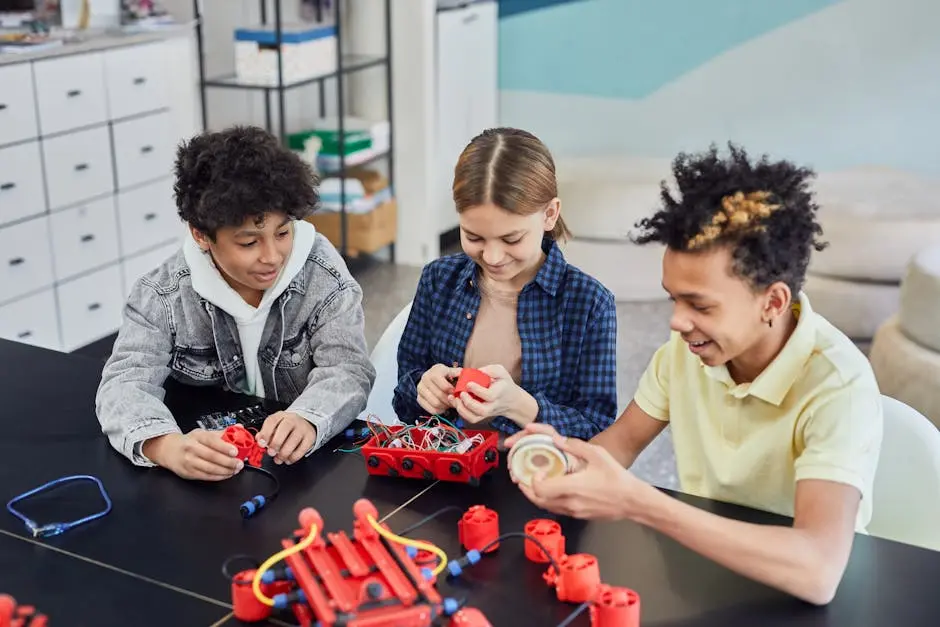In today’s fast-paced world, the ability to cultivate sustainable habits can be the key to personal and professional success. One of the most effective pathways to achieving this is through skill enhancement. But how exactly can improving our skills lead to long-lasting habits? Let’s explore this connection step by step.
Understanding Skill Enhancement
Skill enhancement involves developing and refining abilities through practice, education, and experience. Understanding its core principles is the first step towards leveraging it for habit formation.
At its core, skill enhancement doesn’t merely revolve around acquiring new abilities; it’s about mastering existing ones and continuously seeking improvement. As we embark on this journey, we gradually become more aware of our strengths and weaknesses, paving the way for sustainable habits.
By actively participating in educational programs or engaging in self-directed learning, we immerse ourselves in an environment ripe for personal growth. This also allows us to discover new passions that can inspire positive behavior changes.
Consequently, as we enhance our skills, we position ourselves to tackle challenges more efficiently. This newfound ability to handle tasks with ease boosts our motivation, creating a feedback loop that further solidifies the habits we wish to adopt.
The Connection Between Skills and Habits
Exploring how enhanced skills can influence day-to-day behaviors reveals a powerful link. Improved skills can lead to increased confidence which directly impacts our willingness to adopt and maintain new habits.
Moreover, when we feel competent in a skill, the likelihood of engaging in related behaviors increases. For instance, an individual who enhances their cooking skills is more likely to choose cooking over fast food, establishing healthier eating habits.
The positive reinforcement from mastering a skill reinforces our desire to engage in more constructive actions. As we see progress, our motivation grows, which fuels our commitment to creating and maintaining those habits.
This seamless transition from skill to habit often involves a psychological shift. We begin to see ourselves not just as learners, but as individuals capable of significant change, making it easier to commit to maintaining our new routines.
Setting Realistic Goals
Establishing achievable, specific goals related to skill enhancement is crucial. When we set realistic targets, we create a structured approach that encourages the formation of sustainable habits over time.
Setting a series of small, manageable goals allows us to track progress without feeling overwhelmed. For example, instead of aiming to run a marathon, starting with a goal of running a mile each week can lead to gradual, lasting change.
Furthermore, each accomplishment no matter how small acts as a stepping stone to greater achievements. These successes build momentum and reinforce our capacity to create new habits steadily.
It’s important to revisit and adjust these goals periodically. As we enhance our skills and gain confidence, we might discover that we are capable of more than we initially envisioned, leading to even greater improvements in our habits.
Creating a Supportive Environment
Surrounding yourself with a community or environment that supports skill development can reinforce sustainable habits. The right ambiance can motivate us to practice regularly and share our experiences.
A supportive network enhances accountability; when we know others are aware of our goals, we become more committed to achieving them. This social aspect of skill enhancement not only strengthens our resolve but also makes the journey enjoyable.
Moreover, sharing our skill-enhancement journey with peers or mentors opens up a treasure trove of tips, insights, and encouragement. The wisdom of others can often guide us in navigating challenges and further aid in the formation of lasting habits.
We also can create physical environments that bolster our skill enhancement efforts. For instance, having a dedicated workspace or choosing to spend time in places that inspire creativity can positively influence our habit-building endeavors.
Consistent Practice and Reflection
Regular practice is vital for both skill enhancement and habit cultivation. Additionally, reflecting on our progress helps to solidify new skills and ensures that better habits take root in our daily routines.
Establishing a routine that incorporates practice and reflection can anchor us in our journey. Consider journaling after each practice session; it not only consolidates learning but also highlights areas for improvement, keeping motivation high.
Ultimately, this blend of practice and self-reflection encourages a growth mindset. Each step we take enhances our skills while also reminding us of our potential, making it easier to blend those skills into sustainable habits.
As we engage in consistent practice, we may also find new pathways for improvement which brings additional insights into our habits. Through perseverance, we can refine our skills, ultimately leading to a fulfilling transformation in our behaviors.
The Lasting Impact of Skill Enhancement on Habits
Ultimately, the journey of skill enhancement opens up not just immediate benefits, but also the potential for lifelong sustainable habits. By consistently applying and refining our skills, we instill a sense of discipline and resolve that permeates various aspects of our lives. Embrace the process, stay committed, and watch as your habits transform for the better.




